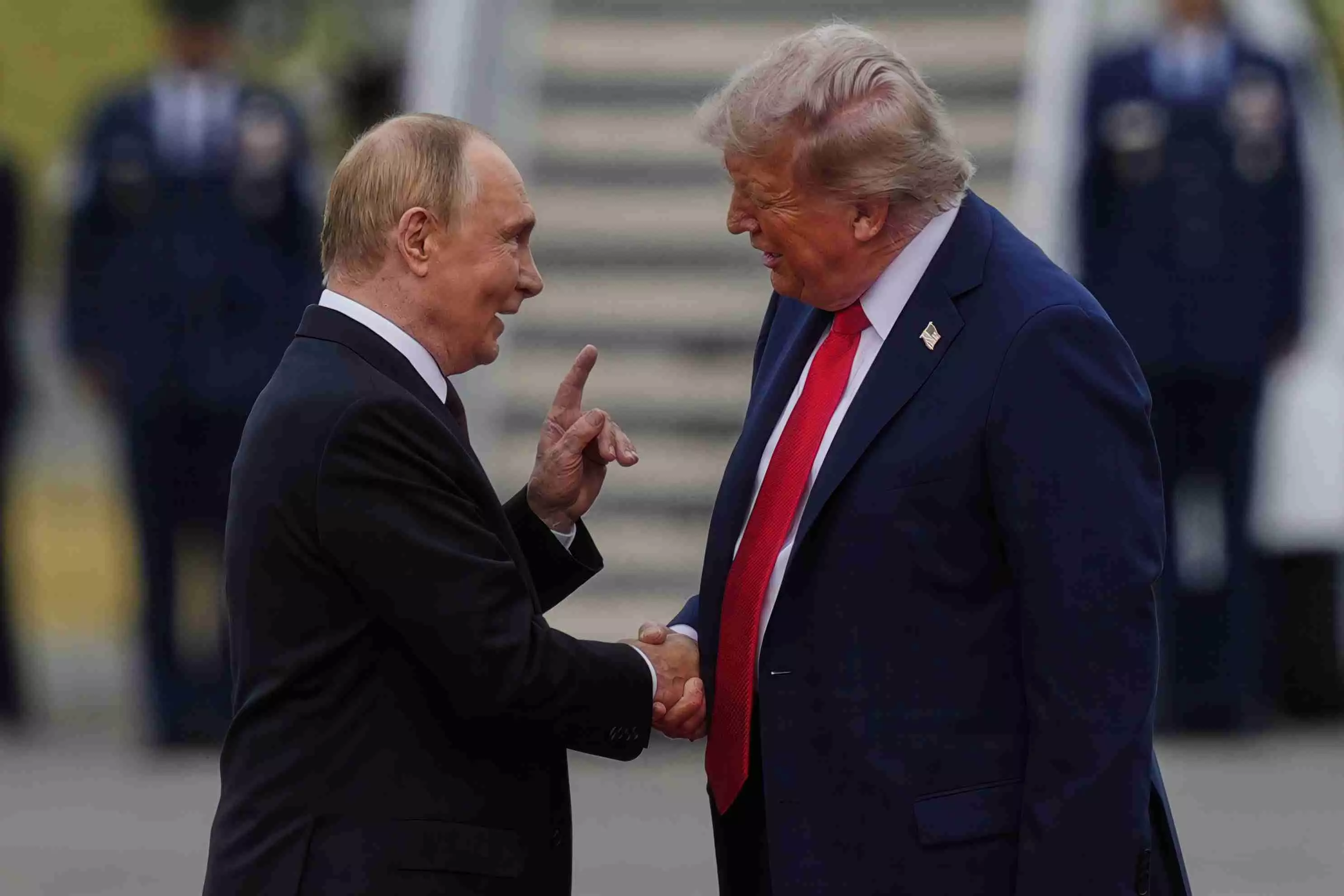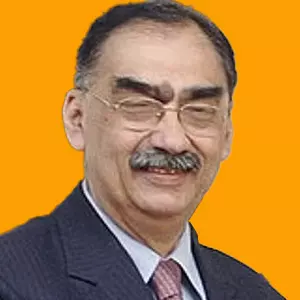
- Home
- India
- World
- Premium
- THE FEDERAL SPECIAL
- Analysis
- States
- Perspective
- Videos
- Sports
- Education
- Entertainment
- Elections
- Features
- Health
- Business
- Series
- In memoriam: Sheikh Mujibur Rahman
- Bishnoi's Men
- NEET TANGLE
- Economy Series
- Earth Day
- Kashmir’s Frozen Turbulence
- India@75
- The legend of Ramjanmabhoomi
- Liberalisation@30
- How to tame a dragon
- Celebrating biodiversity
- Farm Matters
- 50 days of solitude
- Bringing Migrants Home
- Budget 2020
- Jharkhand Votes
- The Federal Investigates
- The Federal Impact
- Vanishing Sand
- Gandhi @ 150
- Andhra Today
- Field report
- Operation Gulmarg
- Pandemic @1 Mn in India
- The Federal Year-End
- The Zero Year
- Science
- Brand studio
- Newsletter
- Elections 2024
- Events
- Home
- IndiaIndia
- World
- Analysis
- StatesStates
- PerspectivePerspective
- VideosVideos
- Sports
- Education
- Entertainment
- ElectionsElections
- Features
- Health
- BusinessBusiness
- Premium
- Loading...
Premium - Events

Neither Ukraine nor European countries will find it easy to allow Russia to get away even partially with the gains it has made since it invaded Ukraine in February 2022
It has been 40 hours since US President Donald Trump and his Russian counterpart, Vladimir Putin, concluded their summit in Alaska. This was arguably the most significant bilateral meeting between two heads of state this year, with the potential to positively impact the Ukraine conflict and European security. It could also shape the course of international events. The coming weeks, beginning with Ukrainian President Volodymyr Zelenskyy’s visit to the White House on August 18, will be crucial in determining the summit’s final outcome.
Also read | Trump-Putin Alaska Summit: Russian peace deal focuses on Donetsk, Luhansk in Ukraine
Putin and Trump made statements to the media after their meeting. These statements, as well as the interview given by Trump in Alaska to Fox News anchor and his admirer Sean Hannity, provide insight into the prelude to the summit as well as its outcomes. The following important points emerge from a close monitoring of both. The enormous media commentary and the remarks of different leaders cannot undermine the contents and significance of both the statements and the Trump interview.
Trump-Putin deliberations
It is clear from both Putin's and Trump’s remarks to the media that both leaders had instructed their advisors to hold extensive discussions on substantive issues with both countries. Both leaders had been in telephonic contact, too. It was not, as some had speculated, and as Trump himself suggested in his remarks, a meeting merely to “feel each other out”.
Putin said, “In general, President Trump and I have very good direct contact. We’ve spoken multiple times. We spoke frankly on the phone. And the special envoy of the president, Mr Witkoff, travelled to Russia several times. Our advisers and heads of foreign ministries kept in touch all the time, and we know fully well that one of the central issues was the situation around Ukraine”.
Trump did not directly endorse Putin’s statements, but he did so indirectly. He emphasised that he would discuss his talks with Putin with Zelenskyy and other European leaders, focusing on the Ukraine conflict. Trump said, “They’re going to have to agree with what Marco (Secretary of State Marco Rubio) and Steve (Special Envoy Steve Witkoff) and some of the great people from the Trump administration, Scott (Treasury Secretary Scott Bessent) and John Ratcliffe (CIA Director), have discussed here. Thank you very much. But we have some of our really great leaders. They’ve been doing a phenomenal job”.
Ukraine deal uncertainty
The main points regarding the Ukraine conflict relate to territory, Ukraine’s ability to take sovereign decisions about its security policies in the future, and security guarantees to Ukraine that Russia will adhere to any agreement that may be reached to end the conflict. Naturally, these are matters on which Trump cannot decide either for Ukraine or other European countries that are worried about the future of European security. The question is whether on these issues, Trump and Putin reached an understanding.
Putin said, “I expect that today's agreements will be the starting point, not only for the solution of the Ukrainian issue, but also will help us bring back business-like and pragmatic relations between Russia and the US.” Earlier, in his statement, he said, “I would like to hope that the agreement we’ve reached together will help bring us closer to that goal and pave the path towards peace in Ukraine. We expect that Kyiv and European capitals will perceive that constructively and that they won't throw a wrench in the works. They will not make any attempts to use some backroom dealings to conduct provocations to torpedo the nascent progress.”
Also read | Trump moves away from ceasefire, now wants Russia-Ukraine peace deal
Two important points emerge from these remarks of Putin. In the earlier comment, he said that agreements had been reached. In the latter, he said that they will be the “starting point” both for the Ukrainian conflict as well as the normalisation of Russia-US ties. There is a basic difference between an agreement that is definite and final, and one that is a “starting point,” obviously for further negotiations.
Can Trump strike a deal?
On his part, Trump said that while progress had been made, they had not reached an agreement. As he put it, “I would say, a couple of big ones that we haven't quite gotten there, but we’ve made some headway. So there's no deal until there’s a deal.” The other significant point is Putin’s warning to Ukraine and European countries not to put obstacles in the progress made by Trump and him in resolving the Ukrainian issue.Neither Ukraine nor European countries will find it easy to allow Russia to get away even partially with the gains it has made since it invaded Ukraine in February 2022. The question is how far the pragmatic deal-maker Trump will push them to agree to make concessions on issues of sovereignty, territorial integrity, and a new normal in European security. What Europe really has to accept is that its place in the world has been diminished, even if it wants to pretend that it has not. This will become clear within the next few weeks, if not days.
In his statement, Putin massaged Trump’s ego. He agreed with him that had he been the President, the Ukraine conflict would not have taken place. This is what Trump has been claiming since the war began! Putin is said to be a 'great manipulator', and these remarks showed his skills in this area. Both leaders also agreed that there is great scope for Russia-US economic and technical cooperation.
Navigating Ukraine talks
Two remarks by Trump to Hannity require close analysis by Indian policymakers, in particular.
On the Russia-China relationship, Trump said, “So, Biden did something unthinkable…. He drove China and Russia together. That's not good. If you are just a minor student of history, it's the one thing you didn't want to do because they're basically natural enemies. Russia has tremendous amounts of land. China has a tremendous number of people, and China needs Russia’s land. But because of pure stupidity, they were driven together. And you know what? That's what it is. I don't know that it's going to stay that way because it really is. There's a -- you know, there's a natural friction there.”
It is true that Russia-China relations are very strong today. Russia is also dependent on China for its security needs in the area of conventional war. China’s purchase of Russian energy has sustained its economy. However, Russia-China ties were not always friendly. Trump has more than hinted that he wants to disrupt the Russia-China relationship. How he proceeds to do so will have to be monitored by the Indian strategic community.
Operation Sindoor fallout
Hannity repeatedly told Trump that he was a peacemaker and was stopping wars. Among those he listed were the recent Indo-Pak hostilities. At this, Trump said, “Take a look at India and Pakistan. They were shooting down airplanes already, and that would have been maybe nuclear. I would have said it was going to go nuclear, and I was able to get it done. Number one is life, and number two is everything else. Wars are very bad, and if you can avoid them and I seem to have an ability to end them, to get people together.”
Also read | Trump-Putin Alaska meeting: Why it matters | Prof Swaran Singh explains
This illustrated once again that Trump’s anger against India is because it has not acknowledged that he played a role in ending the India-Pakistan hostilities, which took place during Operation Sindoor. This has obviously become very personal for him. Pakistan thanked him for ending the war and nominated him for the Nobel Peace Prize. His tilt towards Pakistan is now apparent.
Prime Minister Narendra Modi cannot follow Pakistan’s approach, nor mimic how Putin played to Trump’s ego. How he navigates his interactions with Trump in the coming weeks and months remains to be seen.
(The Federal seeks to present views and opinions from all sides of the spectrum. The information, ideas or opinions in the articles are of the author and do not necessarily reflect the views of The Federal.)


